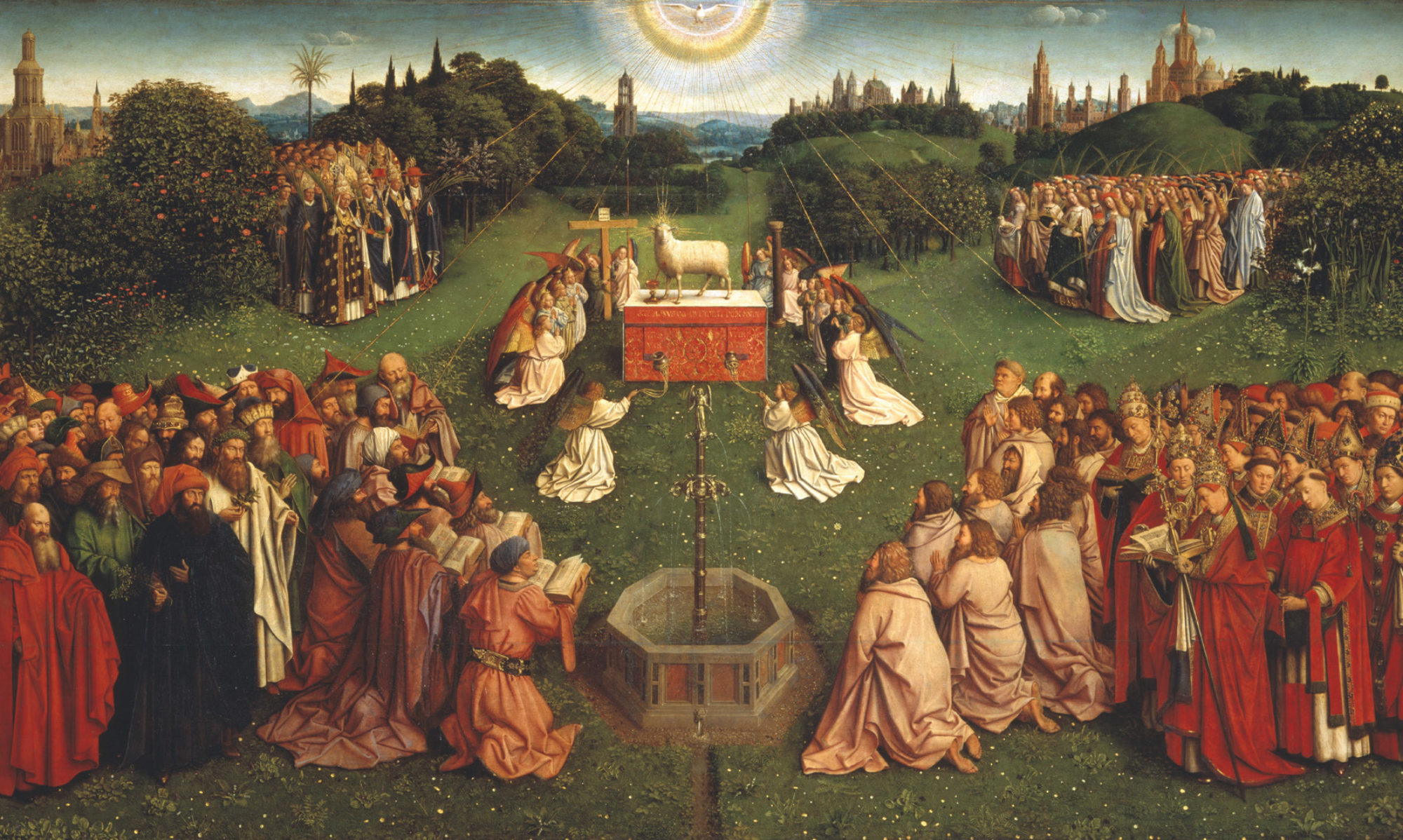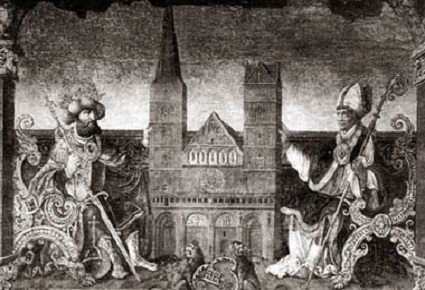St. Willehad was a native of the Anglo-Saxon kingdom Northumbria, born sometime around 745. It is his peculiar fate that he was friends with many influential people at the time, but has largely been forgotten while they have been remembered. He was a close friend of Alcuin, the scholar of Charlemagne, and was educated at York by the famous St. Egbert. Sometime around 765 he was sent by the Northumbrian King Alchred to continue the missionary work in Frisia begun by St. Boniface, who had been martyred there eleven years earlier.
In Frisia, Willehad preached in Dockum, the very place where Boniface had been slain, and made many conversions among the Frisians. In 780 Charlegmagne sent him to Wigmodia on the other side of the Weser to preach among the Saxons, in whose tongue he was fluent. Willehad had great success there until the Saxon insurrection of 782 forced him to flee, leaving behind many churches which were subsequently destroyed. Many of his companions were caught and killed, but Willehad managed to escape to Rome. Pope Adrian I allowed him to retire to the monastery of Echternach where he spent time as a copyist transcribing the Epistles of Paul. Soon, however, Charlemagne had suppressed the Saxon uprising, forced Christianity upon the Saxons, and Willehad was recalled to missionary activity. He was made Bishop of Worms in 787 and fixed his residence at Bremen, where he built a cathedral in honor of St. Peter in 789.
Only a few days after the consecration of the Bremen cathedral, Willehad departed for another missionary journey, but was suddenly stuck with a fever and died quickly. He was buried on the road where he died. His remains were transferred to a small chapel erected by his successor St. Willericus.
The first life of St. Willehad was written within a century after his death, and an account of his many miracles was composed by none other than the great St. Anskar, the Apostle to Scandanavia. Veneration of St. Willehad was popular in Germany throughout the Middle Ages, but during the Reformation his relics were lost and as the area around Bremen turned Protestant, virtually all memory of the great Anglo-Saxon missionary was lost. His feast was only reintroduced by Pope Leo XIII in the Dioceses of Munster, Osnabrück, and Paderborn to be observed on a vacant day after 8 November.
This friend of Alcuin, pupil of St. Egbert, successor of St. Boniface, intimate of Charlemagne and role model of St. Anskar still today remains largely neglected.
St. Willehad, ora pro nobis!
Phillip Campbell, “Willehad of Bremen,” Unam Sanctam Catholicam, July 16, 2012. Available online at http://unamsanctamcatholicam.com/2022/09/willehad-of-bremen

